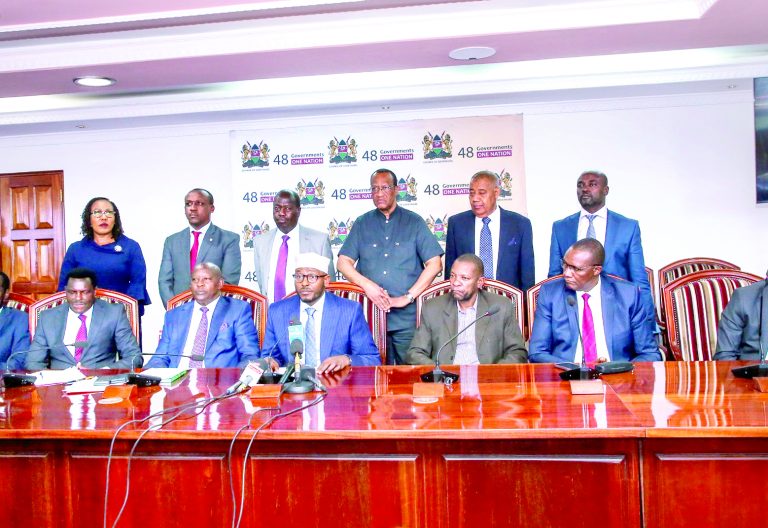How counties siphon funds

The Auditor General has unearthed devious habits through which county government officials siphon hundreds of millions from the devolved units.
In the 2023-2024 report, the Office of the Auditor General (OAG) exposed the financial rot and high-level corruption that continues to negatively impact development programmes in the county governments across the country.
The report singled out that misallocations, wastage of resources, lack of value for money in the implementation of projects and loss of public funds continues to threaten economic growth and the sustainability of service delivery in the counties.
Inaccuracies
Nancy Gathungu, the Auditor General, regretted that despite numerous reports indicating a lack of accountability and inadequate documents to support the legality and effectiveness in the use of public resources.
The compilation of audit reports on all county governments examines the financial management practices of each county government’s executive branch.
In Mombasa for instance, the audit report exposed inaccuracies in the financial statements submitted for audit.
There were glaring anomalies, unexplained voided transactions, unexplained variances in cash and cash equivalents, variances between cash book balance and reported bank balance, variances between bank reconciliation statement and certificate of bank balances.
Other highlights from Mombasa’s audit report were unsupported domestic travel subsistence, unresolved prior year matters, pending bills, non-compliance with the law on fiscal responsibility on wage bill and irregular promotion of workers.
In Kwale, Gathungu questioned the county administration over inaccurate expenditure on acquisition of assets, unsupported voided transactions, irregular charge on the cash vote, non-compliance with the law on ethnic composition in recruitment and overall staff composition. There was also failure to meet recruitment threshold for persons with disabilities among other areas.
“The county recruited 116 employees during the year. However, no persons living with disability were recruited yet the numbers are below the minimum required threshold contrary to the provisions of part B.23(2) of the Human Resource Policies and Procedures Manual for the public service, 2016 which set a threshold of 5 per cent of positions to be filled by persons with disability,” Gathungu noted in her report.
Incomplete records
In Kiambu, Gathungu highlighted irregular procurement of supply and delivery of pharmaceuticals and drugs, irregular payment of pending bills, high rate of contingent liabilities, irregularities in human resource management, late remittance of statutory deductions, unapproved payroll data, failure to follow career progression guidelines among other grey areas.
Murang’a was also not left out in the report that fingered the county administration over anomalies in project implementation, unsupported expenditure on hospitality, supplies and services, unreconciled pending bills records, lack of internal audit reports, long outstanding bills, delay in construction of fire station project among other areas.
Gathungu at the same time highlighted lack of accountability in the implementation of governor Johnson Sakaja’s Dishi na County Nairobi School feeding programme.
According to the report, there was no accountability for the funds used, the county lacked established measures regarding the management of the donations received as there were no guidelines in place for handling such donations.
“The county executive entered into a contract with Food for Education on December 5, 2023 for the provision of school feeding services as part of the feeding programme for one year at a rate of Sh25 per plate. However, it was noted that the learners pay the organisation an amount of Sh5 directly per plate for the meals provided therefore the county executive should have paid the organisation Sh20 per plate, as part of the contract. The implementer ended up earning an amount of Sh30 per plate instead of the contracted amount of Sh25,” Gathungu indicated.









